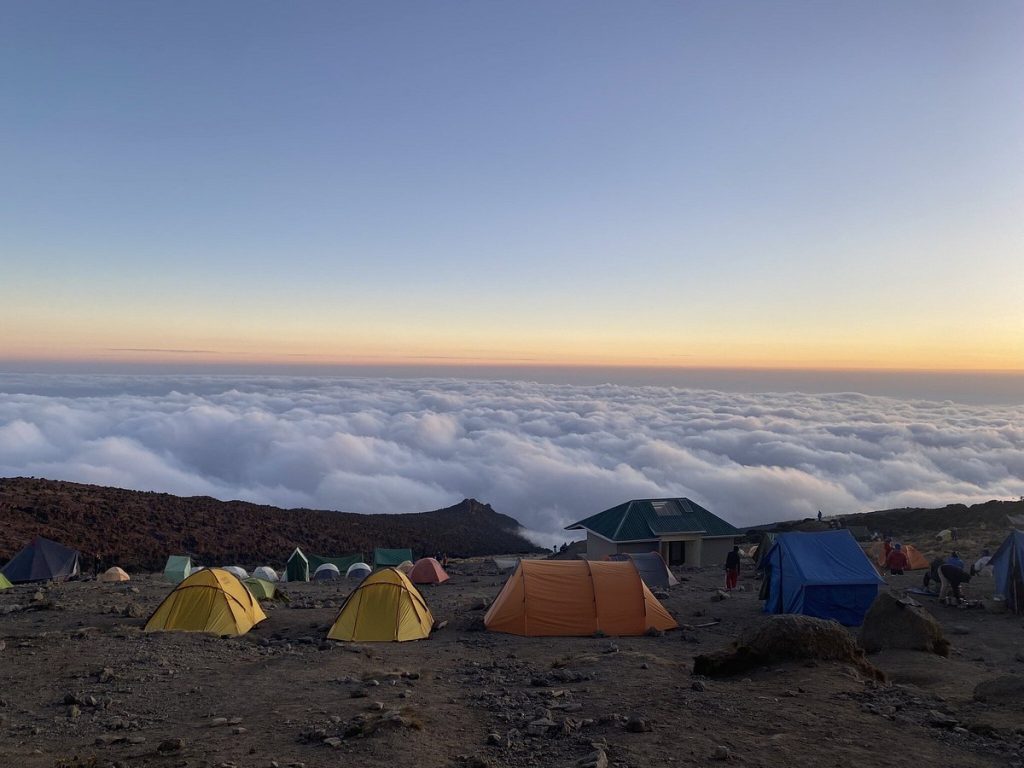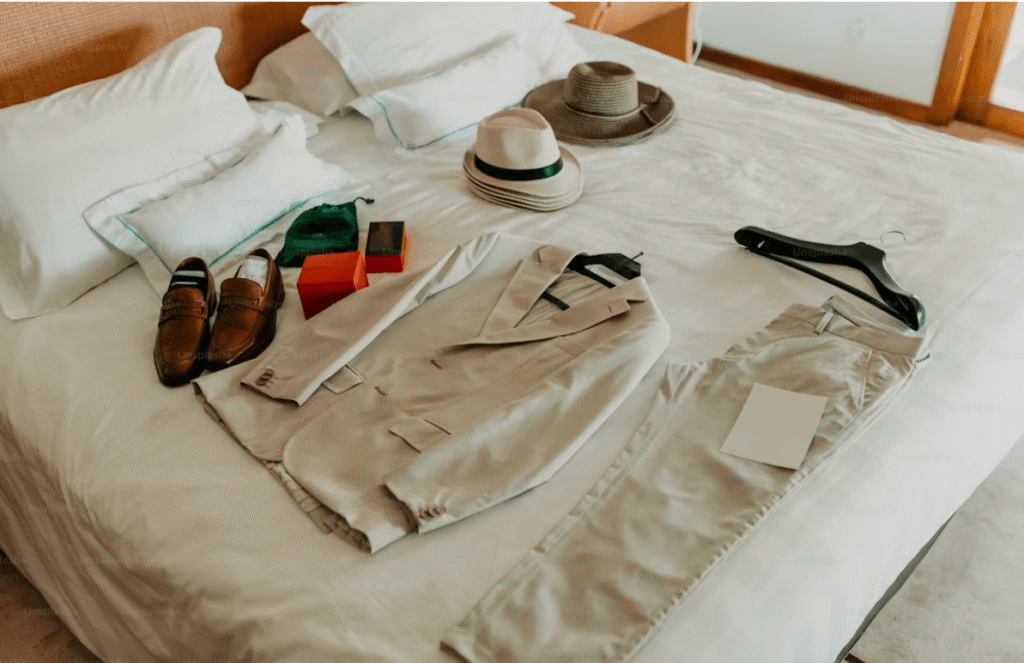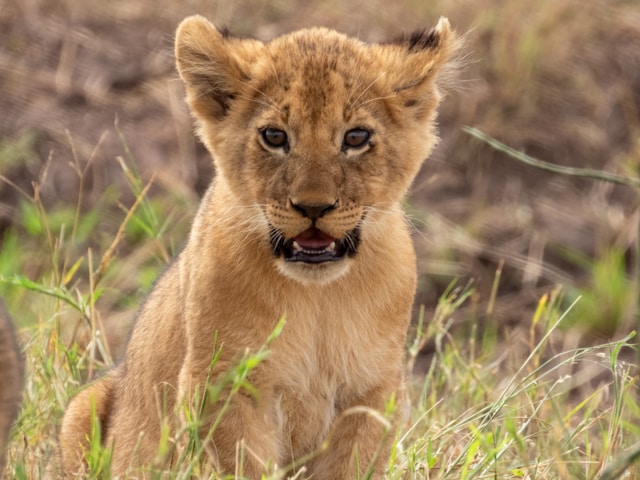Visa and passport
To travel to Tanzania, you must have a visa and a valid passport. The passport must be valid for 6 months upon return to your country. It can be obtained upon arrival at the airport or at the border during transit. Payment for the visa in Tanzania is in US dollars. Please note that you will have to wait in line for the visa. Of course, you can also buy the visa in your country before your departure. This can be done at the Tanzanian consulate or via a visa service.
Vaccinations and medicines
Jolita Safari is not authorised to provide you with medical advice on this matter. For the most up-to-date information, we advise you to contact your Doctor or the nearest Hospital. Although not mandatory, we strongly advise you not to travel without the recommended vaccinations. Here we provide a guideline on which vaccinations you should consider. For Tanzania and Zanzibar, a Yellow Fever vaccination is a mandatory. Furthermore, vaccinations for DTP and Hepatitis A (jaundice) are recommended in any case. Also ask your Doctor for information about Bilharzia.
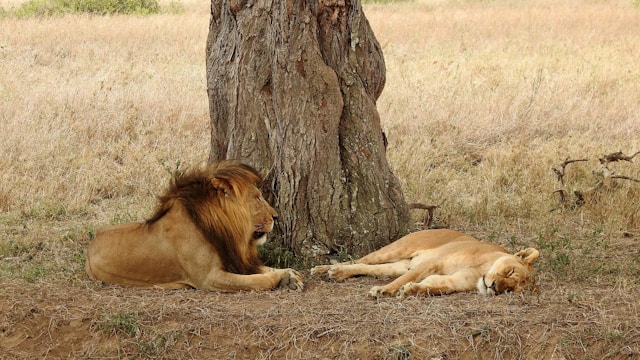
Malaria
We would like to draw your attention to Malaria separately. Jolita Safari is also not authorised to give you medical advice on this matter. For the most up-to-date information, we advise you to contact your Doctor or the nearest Hospital. Malaria occurs in Tanzania and precautionary measures are therefore necessary.
Mosquito nets
It is not necessary to bring mosquito nets yourself. Almost all accommodations have taken measures to prevent nuisance during your sleep. Of course, it cannot be ruled out that a mosquito will occasionally enter. You can also play a role in this by closing doors and windows each time you arrive or leave. This also applies to camping safaris. In addition to keeping insects out, this also ensures greater safety.
What transportation during safaris?
This varies per safari. There is a difference between Northern and Southern Tanzania. During the safaris in Northern Tanzania you travel in very reliable Land Cruisers. Depending on the size of the group, it is possible to share a Land Cruiser with a maximum of 6 people. All Land Cruisers are equipped with a pop-up roof. This gives you an excellent view of the surroundings and the animals. The safaris in Northern Tanzania are all private safaris and based on a private Land Cruiser and private guide. Apart from your own group, there are no other travelers in the Land Cruiser. During camping safaris, an assistant guide/cook also accompanies you during the safari.
During lodge safaris in the south and west of Tanzania, it works a little differently. Although you follow your own travel schedule and it is a private safari, in most cases we work with a 4×4 car and guide from the lodges. You share this car with other guests who are present at the lodge or tented camp at that time. Often there are a maximum of 6 people per car. It is also possible to drive here with your own guide and car. But this is not allowed by every accommodation. Often transfers between the various parks in the south and west of Tanzania also take place by flight.
The Great Migration
The Great Migration or “The Great Migration” or the “wildebeest migration”, is one of the most impressive spectacles of nature worldwide, in which enormous numbers of animals move. Every year, approximately 1.5 million wildebeest (also called Gnus) migrate together with zebras and Thomson’s gazelles across the vast plains of the Serengeti in Tanzania towards the Masai Mara in Kenya in search of the grass that is most suitable for them at that time. The greatest chance of seeing the migration is, in our opinion, in the first quarter of the year.
In mid-March, the young wildebeest are also born in a short period of time. In addition, the period from April to June/July is also a period in which the migration can be admired in the west. But circumstances such as the number of roads and hills and forests, make the first three months of the year the most favorite period in our opinion. This is because the migration is then often on the southern plains of the Serengeti or in the Ndutu area. In the Ndutu area, unlike the Serengeti, you are also allowed to leave the road to drive closer to the animals. All this makes January, February and March a perfect period.
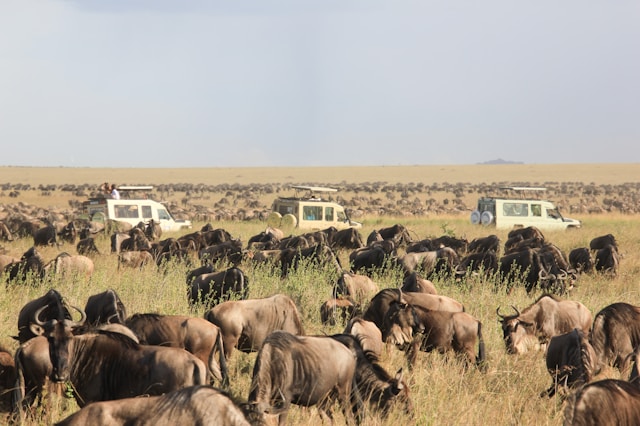
If you travel during this period, we advise you to visit both areas for at least two nights. Access must be arranged separately for both areas and you are not allowed to travel from one area to the other without payment. If the migration is in the Ndutu area and you only stay in the Serengeti, you will miss the migration. The same goes the other way around. Although you are very close as the crow flies, there is a good chance that you will not see the migration if you just guess at an area.
The migration where and when. The migration is constantly on the move because they follow the rains. They often move back and forth and in some periods the individual animals also spread out more and form subgroups. But in general you can assume the picture below. We would like to try to get you to the right place at the right time through customization.
Type of accommodation
We would like to involve you as much as possible with nature. This is not possible when we let you stay overnight in large-scale accommodations. The choice of our proposed lodges and tented camps is mainly aimed at creating a proper “Out of Africa” feeling. Especially in the Serengeti it is fantastic to stay overnight in these small-scale tented camps. The sounds of the bush enhance this special feeling.
We also like to use this form of accommodation in the southern parks. We have placed a large number of the accommodations on the website. As standard, we do not use the most exclusive accommodations but very good middle-class accommodations. In our opinion, spending a lot more money does not contribute to the right feeling of the bush and the experience. If you want to be pampered more, it is of course possible to offer the most luxurious accommodations. We also offer accommodations for a tighter budget. These are often located in less favorable places.
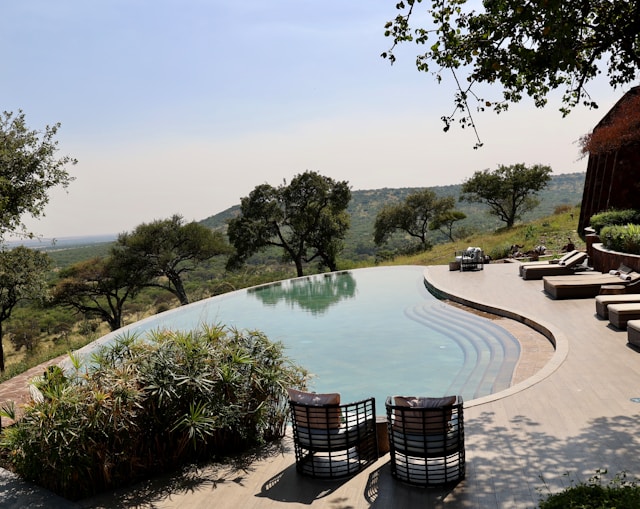
Camping safari
During a camping safari you will spend the night in simple but spacious dome tents. Outside the national parks you will camp on camping spots that are located at a lodge with simple sanitary facilities on the grounds. The facilities on the camping spots in the parks are very primitive. You will then camp on the public campsites. In the Serengeti it is possible to camp on so-called special campsites. These are specially designated spots in the bush without facilities. So you will bring your own bush toilet and bush shower. This is much more hygienic than the facilities on the public campsites that are often very busy. On the special campsites you will only camp with your own travel group. This makes it very special and without the sounds of the other tourists, you will experience much more of the sounds of the bush. There are additional costs associated with the use of the special campsites. Furthermore, it is necessary to reserve these well in advance.
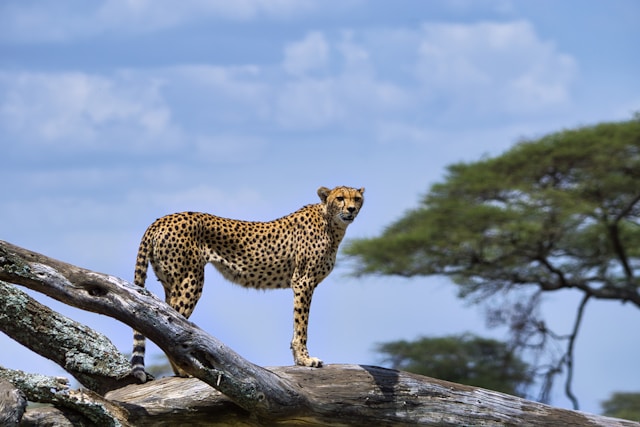
Are wild animals dangerous?
We are very clear about that. Yes, wild animals are dangerous. Not only predators are dangerous but also elephants, buffalos, giraffes, hippos, etc. But also smaller animals such as baboons, antelopes, and many other animals can be dangerous under certain circumstances. Many people claim that wild animals are unpredictable. Our view is different. Wild animals are very predictable if you know the body language of the animals and the rules of the bush. That is why a good guide is so important and it is of great importance that you follow the advice of the guide.
In the parks you are not allowed to leave the car except in specially designated places. So never leave the car, your accommodation or camping site for a short walk. Animals can be everywhere in the parks. Always consult your guide. Also when you need to go to the toilet during a game drive, consultation with the guide is necessary. He will then look for a suitable place where you can make a short stop to pee next to or behind the car. So here too, do not just walk into the tall grass or the bushes. Small animals such as snakes and scorpions are easy to overlook. This all sounds very serious and possibly even a bit scary. That is certainly not the intention. In almost all cases everything goes well and no accidents or dangerous situations occur. But the realization must be present and remain that you are in a wildlife area.
Money matters
A combination of various means of payment is recommended. Think of American Dollars (USD), Euros and a credit card to have on hand. In the larger places you can withdraw money. However, keep in mind that skimming has also penetrated Tanzania and that you do this under safe conditions. Also take into account that ATMs (power outages) are sometimes out of order.
Sufficient cash is therefore important. Exchange to Tanzanian shillings (TS) is possible, but not really necessary. Most places accept USD. You will often receive the change in TS. Most accommodations also allow you to pay for your drinks in USD. The more expensive accommodations (which are not located in the bush) also accept credit cards. How much cash you need to take with you depends largely on how much you want to spend on optional excursions, drinks, souvenirs, tips, etc. So it is difficult to advise. For drinks you can expect prices that are slightly lower than ours. This does depend on the accommodations.
Price level
On average, the price level in Tanzania is slightly lower than most of the countries. However, a safari in Tanzania costs a lot of money. This is mainly due to the entrance fees for the national parks. Incidentally, these entrance fees are always included in our price. A good guide and safe and well-maintained transport are also important for a safari. In addition, there are the fixed costs for diesel and petrol. These are all elements that count towards the price of the safari. Saving on this would inevitably mean that this would be at the expense of the safari and the price/quality ratio. We can therefore often only look for price savings in the choice of accommodation.
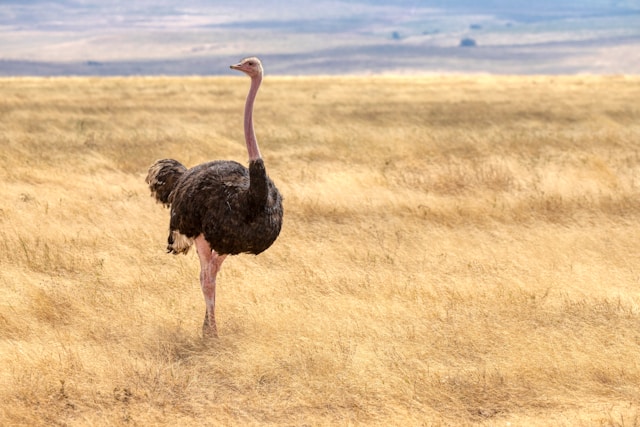
Luggage
For all trips to Tanzania, luggage cannot be taken in hard suitcases but in a backpack or soft travel bag. Normally, the maximum weight is 20 kg per person. If you use a domestic flight, the weight may be lower. For example, 15 kg. For climbs, we recommend not taking all your luggage up the mountain. Use a small daypack in which you can store your personal belongings. The rest of the luggage is carried by porters during the climb.
Altitude sickness
For this I refer to the following document on altitude sickness.
Optional activities
Of course we would like to book optional activities for you in advance. However, we wonder whether it is wise to fix everything precisely in advance. In addition to the fact that the optional activities can easily be booked on site, it is questionable whether you still need them at that specific moment when you are actually in Tanzania. If the latter is the case, the payments have already been made and it is no longer possible for us to receive the money back from the local person carrying out the activity. We generally include optional activities in the custom proposal or the booking confirmation.
Language
In Tanzania, the local population speaks Kiswahili. The majority of the population also speaks English. So does your guide during your safari.
Electricity
In Tanzania, 230V is used with a British three-pin plug. Although many of the accommodations we selected have their own adapter for your plug, it may be wise to bring your own adapter. It is also possible to charge your batteries via the cigarette lighter while driving. You will need to bring your own connection for this. Of course, it is also wise to bring spare batteries in case charging is not possible at any time.
Time difference
When it is summer time in the Europe, it is 1 hour later in Tanzania. In our winter time the difference is 2 hours.
Flying to Tanzania
For safaris in northern Tanzania, Kilimanjaro airport is the most popular destination. Unfortunately, only KLM flies directly to this airport. On the way back, you will have a stopover in Dar es Salaam. There are also various combination flights with, for example, British Airways, Emirates, Gulf Air, Swiss Air, Egypt Air, Ethiopian Airlines, Alliance Air, Air Tanzania and Precision Air. This is often cheaper, but you should take into account 1 or more transfers and unfavorable arrival, transfer and departure times. If you book your flight on time, KLM is still favorably priced. This does depend on availability and the period of travel. A departure from Dusseldorf or Brussels may be cheaper. However, you will then have to transfer.
Flying to Nairobi
Flight costs may make you decide to fly via Nairobi. If you decide to do so, we can reserve a so-called “shuttle” bus for you at local costs. These shuttle buses leave every day at 08:00 and 14:00. Depending on your flight, it may be necessary to book a hotel in Nairobi after arrival. We can also reserve or book this hotel for you. At the end of the safari, it is also possible that we arrange a shuttle transfer from Arusha or Moshi to Nairobi for you.
Extension to Zanzibar
Zanzibar is a popular Zanzibar destination for an extension after your safari. There are two options to get to Zanzibar after your safari. By bus and boat or by plane. We strongly recommend that you choose a flight. Although it may be a bit more expensive, this will save you a lot of time and hassle with your luggage. In addition, you will often be on time to catch your flight from Tarangire or Lake Manyara. If you do want to go by bus, you should keep in mind that it will take you two days to get to Zanzibar.
If you take the bus from Arusha to Dar es Salaam, it will cost approximately $40.00 and you will be on the road for at least seven hours. However, public transport is often unpredictable. After arriving in Dar es Salaam, take a fast boat from the port in Dar es Salaam to Stone Town. This will cost approximately $60.00. The crossing takes approximately two hours. It is often very busy on the boat and some people get seasick. So keep in mind that this trip can take two days, because the last boat leaves at four o’clock in the afternoon.
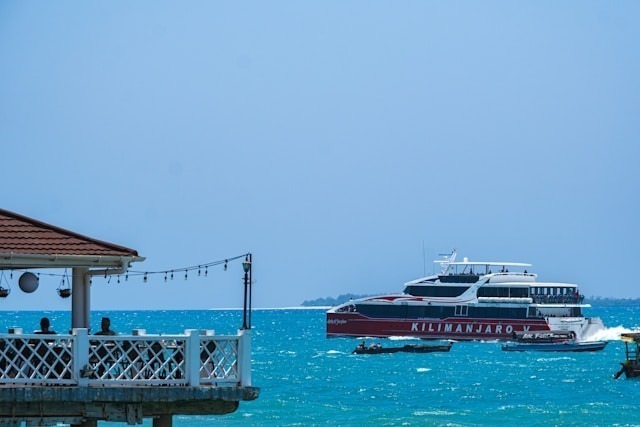
You will also need an overnight stay in Dar es Salaam. All in all, you will then come back close to the price of a flight. By bus and boat is actually more for the adventurous traveler who really wants to travel on a budget. With a proposal for an extension to Zanzibar you will get insight into the costs of the flights.
Tips
We are regularly asked how much tipping should be given. This is perhaps the most difficult question to answer. If you are going on a long safari, an amount per day may be too much of a good thing. Furthermore, it is also a strong goodwill factor. That goodwill factor often depends on how you experienced the guide during the safari. Quality, friendliness, solution-orientedness, knowledge, punctuality, etc. are just a few qualities that play a role in this. But the number of people in your travel group can also play a role. Of course there are guidelines. But everyone can have a different opinion about this. In view of the above, we advise you to consult your own feeling. If you have a good feeling about the tip you give, then that amount is good in your case.
Safe travel destination
Of course, the situation can change overnight, but Tanzania has been a safe travel destination for many years. However, it is important to use your common sense. It is a poor country and, just like in other countries in the world, there are people who want and will take advantage of the opportunity. Always close windows during a stop. Do not wear expensive watches and jewelry when you are in places such as Arusha. Also store your valuables properly in the accommodations. Furthermore, we have a link on the website to the website of the Ministry of Foreign Affairs where you can read more information about safety in Tanzania in general. If calamities break out in Tanzania, we are affiliated with the Calamities Fund Travel Foundation.

